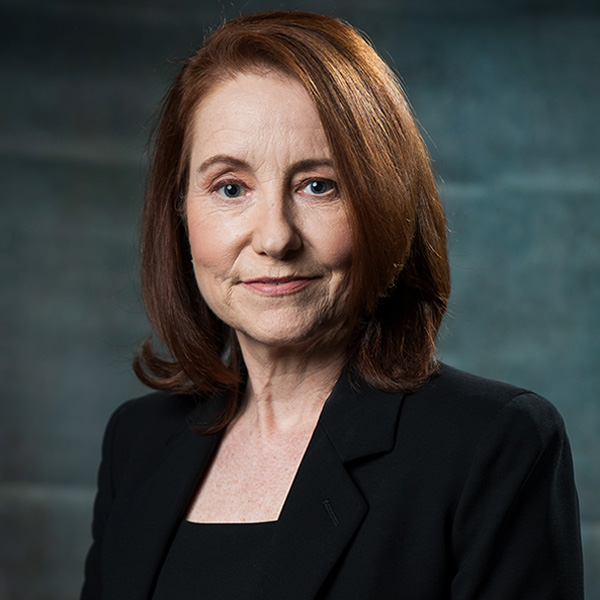Near the peak of the dot-com boom, and not long after he graduated from McGill, Toby Heaps wanted to write about socially responsible business. The product of that ambition, a publication called Corporate Knights, made its debut in 2002.
“The Magazine for Clean Capitalism” now boasts a circulation of more than 147,000, and is included in the Globe and Mail and The Washington Post as a quarterly insert.
The rationale for launching it was pretty simple, according to CEO and publisher Heaps, BA’00, who believes we have opportunities to impact the world with how we spend, invest and choose to work. Often we do it in isolation from things we really care about, Heaps says, because we don’t know who is making a negative or positive impact on the world on those issues.
Corporate Knights aims to make it easier for people to know who is leading and lagging.
Its annual rankings include a Global 100 index of the world’s most sustainable corporations.
Companies “appreciate that we’re fair,” says Heaps, and most “understand where we are coming from, which is ‘hey, we’re not unambiguously on your side, but our worldview is that we won’t solve our major problems without you at the heart of the solution’.”
We spoke to Heaps last fall about Corporate Knights’ rankings, “clean capitalism” and whether he’ll throw his hat into the political ring one day: (This interview has been condensed for space.)
You coined the term “clean capitalism.” What does that look like to you?
We have a formal definition, but in my own words, it’s a system where the prices are counting all of the important things, meaning the externalities, as well as the typical economic factors, the social and environmental externalities. The prices are giving you a fair representation of the true cost of something and there’s enough information available so that you actually know what it means when you’re buying something or investing in something – you know what you’re supporting.
Basically clean capitalism is where the invisible hand is not giving the middle finger to people but is actually sort of guiding events along in a way that is good for society and the planet, in line with what humans, individually and collectively, care about.
For your annual Best 50 Corporate Citizens in Canada report, Corporate Knights evaluates Canadian companies on a bunch of environmental, social, and governance indicators like employee turnover, CEO-to-average-worker pay ratio, and carbon, water, and waste productivity. Hydro-Québec and Toronto Hydro ranked 1, 2, respectively on your 2018 list. What are the best corporate citizens doing right?
It starts with not breaking the law. If you’ve got too many fines, penalties, or settlements, you’re out. In terms of leadership, it starts looking at what impact are your products and services having on the planet. We look at the environmental impacts and the operations as well, so your carbon emissions, your energy use, your waste, water. On the social justice inequality side, the CEO-to-average-worker pay is a really popular indicator and that helps us synthesize is the fish rotting from the head down or do we have more of a fairly structured enterprise.
We also look at some indicators that sometimes put people to sleep – how much tax the company is paying relative to its global peers. Because companies have all sorts of abilities to decide what tax they’re going to pay and it really is an ethical decision, which surprises a lot of people.
We look at what the state of safety is for workers, injuries, fatalities, more relevant in some industries than others. We look at innovation – what R&D is going on. On the governance side, we look at whether or not the company is aligning the executive compensation of the senior executive, CEO, with the sustainability targets of the company or not, and score the companies accordingly.
Why did you decide to work for Ralph Nader as his campaign manager in the 2008 presidential election in the States, and how was that experience?
I worked for him in 2004 as well. In 2008, I (had) a little more senior role. There’s a period of American history where it’s hard to find any progressive legislation that didn’t have his fingerprints all over them.
When we started Corporate Knights after the first issue, I was talking about it with my dad and he said you should interview Ralph Nader. I tried to get a hold of him and it wasn’t that easy to get in touch. Then we did an interview, we got along really well.
I brought him up here for the CEO conference. When we were picking him up at the airport (in 2003), we were talking about if he was going to run again. I encouraged him to get Erin Brockovich to be his running mate. He didn’t take my suggestion. He did call me back because I said I would be happy to come down and go on the trail if there was a use. Then I got a call and went down. I think it was in 2004 and we stayed in really close touch after.
He has been really a key mentor for me. It was a real privilege to be able to work with him and also in the U.S., which is probably the most important global election that happens every four years, to help keep some of those really important ideas, to keep the flicker alive.
Q. Your great-grandfather was a Member of Parliament as well as one of the leaders of the Winnipeg General Strike, and a founding member of the CCF. Your father was elected to Toronto’s city council. Do you see yourself running for political office some day?
A: I don’t look at things necessarily through a left, right, or even a public or private prism. I feel like I’m active now on political fronts on sort of grassroots and on lobbying. It’s more about, how do you get the things you care about over the goal line…I think at some point, when you have a really strong conviction about one or two things you really want to move, and a perseverance to push on them for a couple of decades or even more, that it is difficult to rule out going into the arena. But I don’t think it makes sense to (do it) unless you have all those essential conditions in place.


